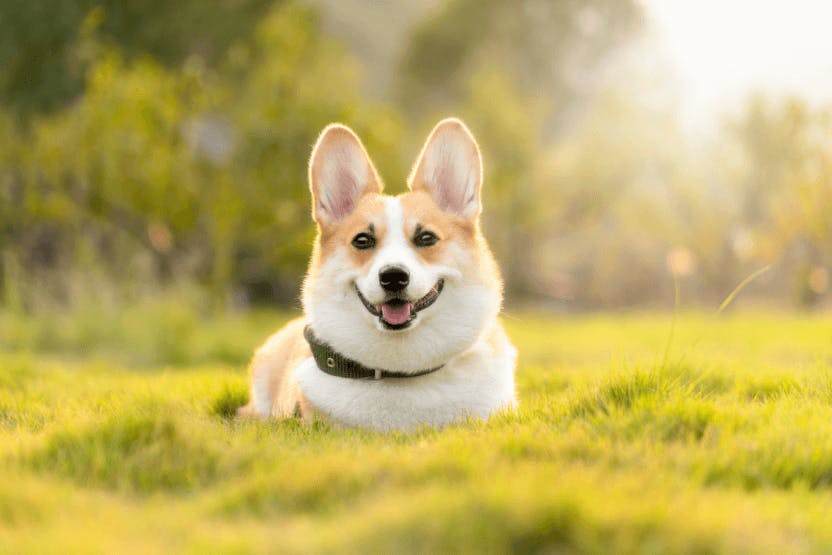Vitamin D is a key nutritional element that dogs need to thrive. This
vitamin is sometimes called the "sunshine vitamin" since humans
synthesize it from sunlight exposure. However, dogs cannot make vitamin D
this way and must get all their vitamin D from their diet.
Worried
your dog isn't getting enough? In this guide, we'll discuss food sources
to make sure your pup is getting the vitamin D they need, as well as
signs of deficiencies to look for. Before we get into that, let's
discuss the functions of vitamin D for dogs.
Vitamin D has many functions within the canine body, primarily revolving around its regulatory effects on
calcium levels.
Vitamin
D is integral for a dog's skeletal system since it helps control
calcium deposits and calcium absorption from the bone. It also plays a
role in absorbing calcium from food as it digests in the intestines.
These calcium regulatory effects mean vitamin D is also essential for
healthy muscle and nerve function in canines.
According to the Association for American Feed Control Official's (AAFCO) recommendations, a kilogram of adult dog food should
contain no less than 500 international units (0.0125 mg) but no more
than 3,000 international units (0.075 mg).

Most kibbles manufacturers fortify their food with a vitamin
supplement mix containing vitamin D, along with other vitamins and
minerals, but this isn't the only source of vitamin D for dogs. Fatty
fish are abundant in vitamin D, as are many other animal products. Here
are a few vitamin D-rich human foods that are safe for dogs to enjoy:
- Salmon
- Tuna
- Herring
- Halibut
- Sardines
- Mackerel
- Egg yolks
- Beef liver
- Cheese
- Yogurt
- Mushrooms
- Fortified oats
- Squash
Signs of vitamin D deficiency
Vitamin D deficiencies in dogs are rare due to the strict nutritional
guidelines for dog food set in place by the
AAFCO. Vitamin D
deficiencies may be a result of eating a diet of unbalanced table food
or
raw foods.
Malabsorption of vitamins and minerals can also be a
factor, especially in pups with underlying digestive problems or a
genetic predisposition. So what are the signs of a vitamin D deficiency
in dogs?
Vitamin D deficiency in dogs may also increase the risk for:
- Congestive heart failure
- Heart disease complications
- Soft bones
- Rickets
- Bone demineralization
- Bone disorders
Treatment of vitamin D deficiency
If your dog is experiencing a vitamin D deficiency, your vet will discuss their diet and possibly suggest switching to a better nutritionally balanced food, adding in dog-safe vitamin D rich foods to their diet, or using a vitamin D supplement. Your vet will also treat any other issues that may be causing the deficiency or that may have arisen due to the deficiency as needed.

Signs of vitamin D overdose
Since vitamin D is fat-soluble, an overdose is always a risk with
this vitamin. There are several reasons why a dog might overdose on
vitamin D. Oversupplementation of vitamins can, over time, accumulate
stores of vitamin D in the body, eventually leading to an overdose.
Accidental overdoses are possible too. One of the biggest risks for
accidental
vitamin D overdose is cholecalciferol-containing rat poison, which may smell appealing to a hungry dog.
Signs of a vitamin D overdose in dogs include:
- Vomiting
- Excess salivation
- Abdominal pain
- Tremors
- Convulsions
- Weakness
- Lethargy
- Constipation
- Anorexia
- Unusual thirst
- Frequent urination or accidents
- Blood in vomit
- Weight loss
- Bloody or black stools
Treatment of a vitamin D overdose
If you suspect your dog is overdosing on vitamin D, take them to a vet immediately. Vets will be able to diagnose this condition by checking a pup's blood work and urine levels for elevated levels of calcium, phosphorous, glucose, and proteins. From there, a vet might induce vomiting (if the overdose is recent) or put them on fluids to help excrete the excess vitamins faster. In extreme cases, vets administer phosphate binders

There are many brands of vitamin D supplements for dogs on the
market, from chewable tablets to drops. So what benefits, if any, do
these provide for our canine companions?
There is evidence that
vitamin D can decrease the risk of heart disease and some types of
cancer in canines. Vitamin D's regulatory effects on calcium may also
reduce the risk of brittle bones as a dog ages. For this reason, vets
often give dogs with rickets extra Vitamin D to combat softening of the
bones. Vets use vitamin D supplements alongside calcium to treat
hypoparathyroidismin dogs.
It's important to mention that
supplements are no substitution for a healthy canine diet, and
otherwise, healthy dogs on a quality kibble may not benefit from them at
all. Talk to your vet before placing your dog on any vitamin regimen
since your vet may want to do blood work to see where your dog's levels
are to ensure the right dosage. If you do decide to give your pup
vitamin D supplements, remember that the dosage should not exceed
100-120 mg/ml per day.
Worried your pup isn't getting enough of what they need? Live chat with a
veterinarian today!


